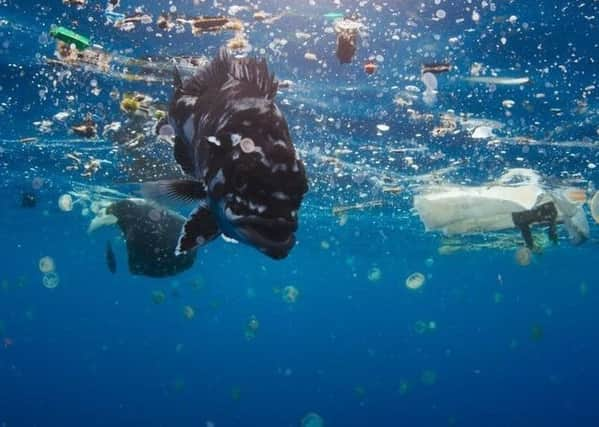Dr Thérèse Coffey: Tide turns as we confront plastic threat to oceans


Commonwealth member states will join forces in the fight against plastic pollution by pledging action and enterprising approaches, such as the global ‘ghost gear’ initiative, which seeks to encourage the greater removal of marine litter caused by fishing. Seven countries have come forward so far in support of the alliance: New Zealand, Australia, Kenya, Ghana, St Lucia, Fiji and Sri Lanka. Engaging companies and non-governmental organisations will be essential to meet the challenge of plastic pollution.
The Commonwealth clean oceans alliance will work in partnership with the World Economic Forum, Sky, Waitrose, Coca-Cola, Fauna and Flora International and the World Wide Fund for Nature to share expertise and experience, and push for global change. The Prime Minister also announced £61.4m in funding to boost global research and to help countries across the Commonwealth to stop plastic waste from entering the oceans.
Advertisement
Hide AdAdvertisement
Hide AdOur deposit return scheme has been highlighted. It is key to boost recycling rates and reduce littering of those bottles. As has been said, it will be subject to consultation later this year. One of the challenges is that in this country we use more plastic material in the on-the-go environment than any other country around the world.
We have to recognise that the process that individuals use, and the way the scheme is processed, is quite different in Norway, Sweden and Germany, which I went to see. We need to consider how we can bring the scheme in line with transport activities. On-the-go activity needs to be considered to ensure that, instead of people throwing plastics away to be disbanded or having always to take them back to their homes or to a particular supermarket, there are potentially ways open to submit them at a rail station or something similar nearby.
We have already committed to reforming our producer responsibility schemes to better incentivise producers to be more resource-efficient. We are already talking to industry and other groups about how we might reform the packaging waste regulations.
Earlier this year we announced our world-leading ban on microbeads in rinse-off personal care products, which will finally come into force before the end of next month. Furthermore, we have announced that subject to a consultation later this year, we will remove the sale of plastic straws, plastic drink stirrers and plastic-stemmed cotton buds in England. We will consider, however, that straws may be required by some consumers who suffer from disabilities and other medical conditions.
Advertisement
Hide AdAdvertisement
Hide AdOur plastic bag charge has been in place since 2015. To give credit to the other nations, England was the last to introduce it. We have had huge success since then, with more than nine billion bags being taken out of circulation.
We have announced that we will take further action on all plastic bags and, in the short term, newsagents have started to take proactive action. Recent research by the Centre for Environment, Fisheries and Aquaculture Science showed a decrease in the amount of plastic bags found on the UK’s seabed.
We will continue to look at ways to reduce plastic waste. Improving and encouraging the removal of high-harm material should be encouraged. In his Spring Statement, the Chancellor launched a call for evidence to seek views on how the tax system or charges could reduce waste from single-use plastics. We need to get better at understanding potential forms, sources and types of impact of different types of marine litter.
The Government cannot do it alone. We support initiatives such as Fishing for Litter, the beach cleans run by the Marine Conservation Society and Surfers Against Sewage, and the other work that people do every day to clean up our seas and look for new ways to reuse and recycle what is recovered.
Advertisement
Hide AdAdvertisement
Hide AdWe are pleased that Morrisons has recently announced that it will sign the global ghost gear initiative.
We are delighted to be supporting the ground-breaking UK plastics pact that was announced last week, which brings together more than 40 companies, NGOs and the Government with the aim of creating a circular economy to tackle plastic waste.
We will continue to work with other countries, NGOs, industry and experts from across the board to go further.
Dr Thérèse Coffey is an Environment Minister who spoke in a Parliamentary debate on marine pollution. This is an edited version.